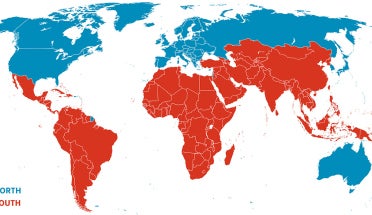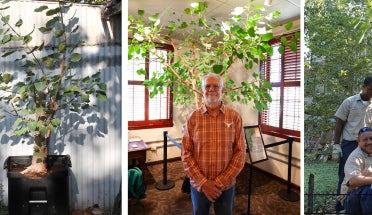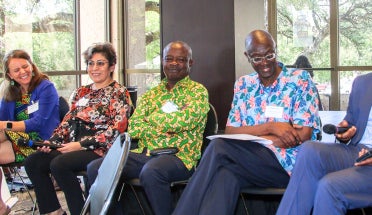
Law Student Recognized for Work with Formerly Incarcerated People of Color
- Mar 5, 2024
- Sally Parker, School of Law
[Editor's Note: This story is part of a Texas Global series celebrating Women's History Month, highlighting contributions to global engagement made by extraordinary women, past, present and future.]
Texas Law student Sondos Moursy was named a 2023 Marshall-Motley Scholar by the NAACP’s Legal Defense Fund for her work championing economic opportunities for formerly incarcerated people of color. The scholarship program honors the contributions of Supreme Court Justice Thurgood Marshall and Constance Baker Motley, an iconic civil rights litigator and the first Black woman to serve as a federal judge.
“I’m really passionate about furthering this work in carceral justice, and the Marshall-Motley program supports that,” Moursy said. “To keep growing, this work takes funding. I can just focus on doing the work because somebody else paid for it. That in itself is the biggest privilege.”
Each year, 10 student applicants from around the United States are awarded full tuition plus funding to cover room and board and incidentals. Following graduation, they complete two-year postgraduate fellowships at civil rights law organizations in the South and attend trainings with the Legal Defense Fund and National Academy of Sciences. In return, they commit the first eight years of their practice to civil rights law on behalf of Black communities in the South.
A Muslim immigrant from Alexandria, Egypt, Moursy grew up in Louisiana and Texas, where she often felt her family’s Islamic values conflicted with the Western lifestyle. This produced an uncommon perspective on issues of human rights and fueled her determination to help people on the margins of society.

During times of struggle, Moursy’s local Muslim community provided solace. Some of the individuals who influenced her the most were the Black people she got to know through the mosque’s community work. She remembers one man in particular, a pillar in the Muslim community who was deeply involved in helping immigrants and others in need.
“He had been in and out of incarceration his whole life,” Moursy recalls. “We were raised with the stigma that anybody who’s incarcerated is bad or they deserve it. So, to meet someone who was so influential and amazing, and just beautiful inside and out, that left a lasting impact on me.”
As a young child, she perceived injustices against Black people on every level. She recalls Black students being disciplined more often despite not acting differently from their white classmates. The school buses were effectively segregated, carrying Black and white students to largely separate neighborhoods.
Those experiences prompted Moursy’s work with formerly incarcerated people during her four years as an undergraduate at the University of Houston (UH). As a fellow in the university’s Action Research in Communities program, Moursy researched and identified the needs of incarcerated women through their testimonies and data analysis. Her project provided recommendations to bolster their re-entry into society with educational opportunities, career services and community building.
During her time at UH, Moursy was also an honors student and an intern in the Houston mayor’s office. Leveraging these positions to further advocate for economic opportunities for women emerging from prison, she helped organize the Healing Injustice Conference, which explored the ways people without monetary means experience legal representation.
Moursy’s work during her undergraduate years intensified her hunger for justice. She desired to be on the inside of the legal system to effect the most change, so she set her sights on law school.
“One of the reasons that I chose Texas Law was because they have so many legal clinics and pro bono projects specifically focusing on carceral injustice,” Moursy says, adding that Texas Law’s research strengths in capital punishment were a particular draw. She says she hopes to intern this summer at an organization that is working for alternatives to the death penalty.
The advocacy qualities sought by the Marshall-Motley scholarship committee also made Moursy an outstanding Texas Law applicant, says Mathiew Le, assistant dean of admissions and financial aid.
“Sondos transforms her personal and professional experiences into fuel to advocate for marginalized groups and mobilize communities,” Le said. “We are always looking for candidates who have demonstrated exceptional abilities in and out of the classroom, and Sondos’ application showed exactly that.”
The Marshall Motley Scholars initiative aims to provide the Southern U.S. with a new generation of civil rights lawyers. It is one of many opportunities available to Texas Law applicants providing access to scholarships and legal training.
Moursy admits to feeling both surprise and relief upon discovering her recognition as a Marshall-Motley Scholar.
“It was validation that I am not screaming into a void, that my work has some sort of impact, and somebody on this Earth recognizes that enough to support it."



